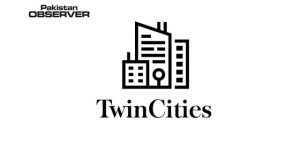The latest WUENIC estimates of national immunisation coverage reveals that Pakistan improved its national routine childhood immunisation rates in 2021 and reduced the number of ‘zero-dose’ children (ZDC) who miss out on vaccines by nearly half – a strong recovery after the number of ZDC in the country rose significantly in 2020.
The percentage of children in Pakistan who received three doses of the vaccine against diphtheria, tetanus and pertussis (DTP3) – a key proxy to measure for immunisation coverage, and the reach of health systems, within and across countries – rose to 83% in 2021, which is close to pre-pandemic levels, after experiencing a decline in 2020 (77%). Pakistan has also improved its first dose measles vaccine coverage by 2% between 2018 and 2021, and in 2021 launched one of the biggest measles-rubella campaigns in history.
The country’s progress in childhood vaccination and reducing zero-dose children is remarkable at a time when the COVID-19 pandemic has negatively impacted essential health services, including routine immunisation, around the world.
Zero-dose children are those that miss out on even a single dose of a basic routine vaccine, meaning that reaching them – and the missed communities they live in – improves the ability of the health system to protect its population.
Pakistan achieved these impressive results by maintaining and restoring immunisation services through, public-private partnerships for service delivery, 24/7 immunisation services in hospitals, integrated immunisation service delivery and extended evening and weekend vaccination in urban slums, amongst other collaborative efforts with partners.
Its progress is an example of how countries can maintain, restore and expand routine immunisation, while remaining committed to fighting the COVID-19 pandemic. With support from Gavi and COVAX, the country has also vaccinated close to 130 million people (around 56% of the total population) with a primary series of two doses.
Following a global rollout of historic scale – with more than 4 billion COVID-19 vaccines rolled out by lower-income countries – Gavi and partners will be focused on supporting countries’ efforts to integrate COVID-19 into routine immunization programmes, leveraging opportunities to increase uptake, demand and delivery of life saving vaccines – and supporting the road to recovery and expansion of coverage.
Dr. Tokunbo Oshin, Director of High Impact Countries at Gavi, the Vaccine Alliance comments on Pakistan’s progress:
“Pakistan has demonstrated its resilience and commitment to immunisation through the impressive progress it has achieved in expanding childhood vaccinations at a time when essential health services, including routine immunisation, have been disrupted by COVID-19 pandemic.










